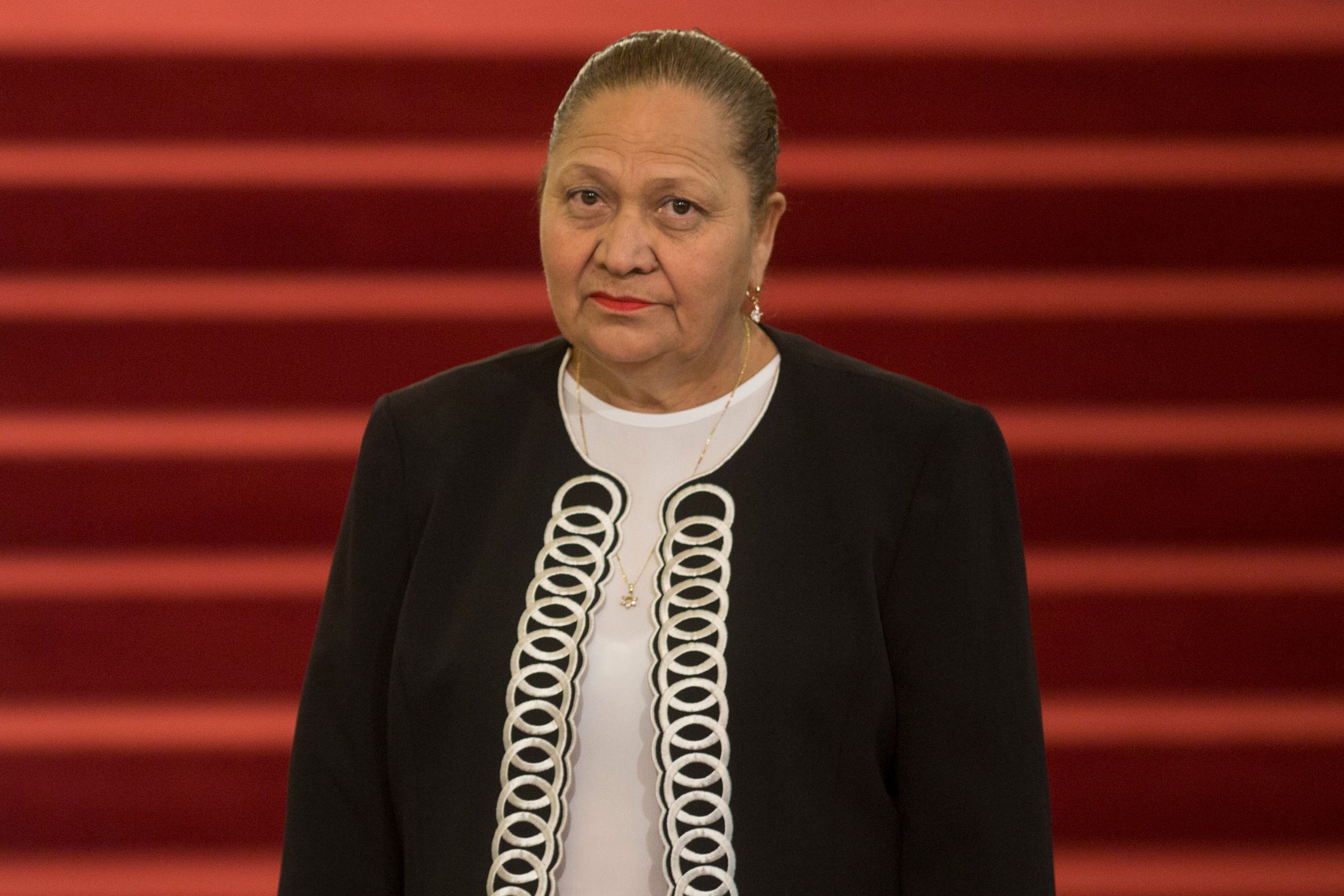Guatemala is stuck with a problematic attorney general, a legal study says
A new legal analysis says Guatemala is effectively stuck with Attorney General Consuelo Porras, who has been criticized and sanctioned by countries around the world for allegedly obstructing corruption investigations and using her power to persecute political opponents

Guatemala’s Attorney General Consuelo Porras has been criticized and sanctioned by countries around the world for allegedly obstructing corruption investigations and using her power to persecute political opponents, but the country is effectively stuck with her, according to a legal analysis published Tuesday.
Since President Bernardo Arévalo's election last year, Porras has pursued his Seed Movement party, alleging wrongdoing in how it gathered the necessary signatures to establish itself. Her investigators raided the party offices, seized and opened ballot boxes and sought multiple times to have his immunity lifted.
Arévalo has said Porras is protecting powerful and corrupt interests in Guatemala who fear his promise to root out corruption. He has called for her resignation.
But Guatemalan lawmakers have created an untouchable attorney general without any feasible legal mechanism to remove her, according to the study by Stanford Law School and Cyrus R. Vance Center for International Justice.
The only way for Arévalo — one of those in Porras’ sights — to remove her is for “duly established just cause,” which since 2016 reforms to narrow the process means conviction for a crime while carrying out her functions.
But that is impossible because Porras controls Guatemala’s criminal investigative and prosecutorial powers. Her own staff would have to initiate and carry out the investigation with her oversight. There’s no way to suspend her while an investigation is carried out.
Porras would be the one to appoint any special prosecutor, with the power to remove them. In addition, she has immunity from prosecution that can only be removed by Congress. Porras’ term runs until May 2026.
“This inherent conflict of interest renders the accountability mechanism ineffective,” the new report said. The report recommended reforming Guatemalan law so that the attorney general can be held accountable, something unlikely to occur anytime soon since the president lacks a majority in Congress.
Arévalo asked for her resignation in January upon taking office, but she refused. Porras first became attorney general in 2018 with the support of then-President Jimmy Morales and was put up for a second term by his successor, President Alejandro Giammattei.
She turned a fight against corruption, which had made real gains in Guatemala with the support of a United Nations-sponsored mission, on the prosecutors and judges who carried it out instead. Dozens fled into exile.
The attorney general’s office did not immediately respond to a request for comment on the report.
But after the Inter-American Commission on Human Rights included Porras in its annual human rights report for her office's alleged election meddling Monday, Porras’ office posted on social platform X that “it rejects any action that tries to infringe on Guatemalans’ rights, and attacks the country’s sovereignty and institutional autonomy."
Bookmark popover
Removed from bookmarks